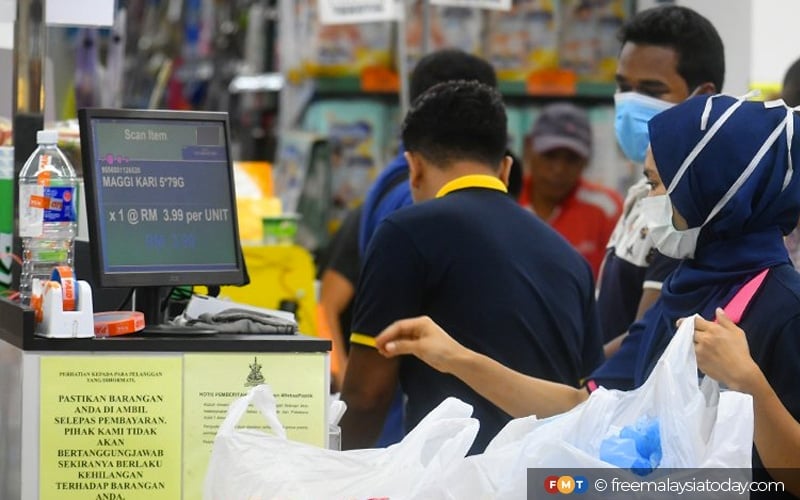
PETALING JAYA: Opposition to the sale and service tax (SST) has intensified just days before the rate is raised from 6% to 8%.
An economist has proposed that the 2% increase be postponed while a trade group wants a return of the goods and services tax (GST) in place of the SST.
The GST was introduced in 2015 but was replaced by the SST on Sept 1, 2018 after Pakatan Harapan (PH) dislodged Barisan Nasional (BN) from Putrajaya less than four months earlier.
Economist Barjoyai Bardai of Universiti Tun Abdul Razak said postponing the increase could ease economic pressure and improve consumer sentiment.
“The government will have to postpone the implementation of the 2% increase in the SST,” he told FMT Business.
“In the meantime, we could work on ways to reduce the cost of living,” he added.
The increase in the SST rate this Friday will not apply for items such as food and beverages as well as services such as telecommunication.
Barjoyai pointed out that consumer spending plays a vital role in driving gross domestic product (GDP) growth.
“Therefore dampening consumer confidence (by raising the SST rate) can have an adverse impact on the broader economic outlook,” he said.
He pointed out that the increase will add only RM2 billion to RM3 billion in the government coffers.
“However, it will have a big psychological effect on the economy. It is the effect it will have on consumer behaviour that we really have to worry about,” he added.
Hoteliers fear for the worse
In the hotel sector, there is a lot of anxiety as the impending increase in the SST rate approaches.
Christina Toh, the president of the Malaysian Association of Hotels (MAH), said the increase will have a domino effect within the supply chain.
“In every purchase we now make, there is an additional 2% (in cost),” she told FMT Business.
“Naturally, this will lead to some price increases,” she added.
However, she said, the impact will be different depending on the class of hotel as well as its location.
Toh said the impact the SST rise will have on a hotel depends on its category, whether it is one-star or five-star, as well as where in the country it is located.
The impact, she said, will be different for hotels in Sabah and Sarawak compared with those in the peninsula.
“Coupled with global inflation and the unfavourable economic situation, there will definitely be an impact on consumer spending. There is no doubt about it,” she added.
Restore the GST
Meanwhile, SME Association of Malaysia secretary-general Chin Chee Seong believes that reinstating the GST is a better option than keeping the SST and raising its rate.
“The GST is undoubtedly a more superior tax than the SST,” he told FMT Business.
He said it would serve as a more significant source of revenue for the government as it requires payment from all consumers.
Under the SST, only specific segments of consumers are subjected to the tax.
“This broader tax base brings more benefits for the government and, indirectly, for us too,” he said.
“With increased revenue, the government can provide more substantial support, particularly to SMEs,” he said.
Chin said that given the broader adoption of the GST in many countries it remains unclear why Malaysia prefers the SST.
“This gives the impression that the government is more concerned about its political priorities than helping the people,” he added.
In October last year, when Prime Minister Anwar Ibrahim announced the decision to raise the SST rate, he said the revenue to the government would amount to 11.8% of the GDP.
This is among the lowest in Asean. In Singapore, the revenue from GST amounts to 12.6% of the GDP while in Thailand, it is 16.4%. - FMT



No comments:
Post a Comment
Note: Only a member of this blog may post a comment.